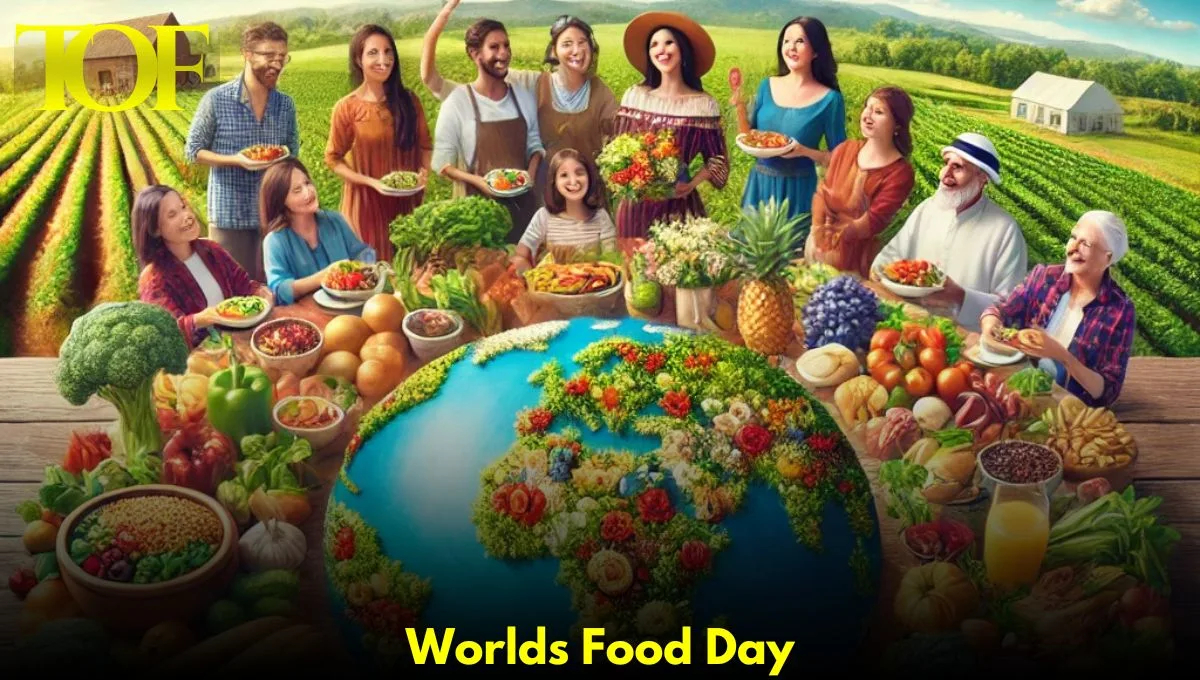Celebrating World Food Day: A Global Commitment
World Food Day is an annual celebration occurring on 16th October that commemorates the founding, in 1945, of the United Nations Food and Agriculture Organization. It’s a day to draw world attention to people’s independence in securing sufficient, safe, and nutritious food and to efforts promoting sustainable agriculture and rural development. Around the world, organizations like WFP, WHO, and IFAD actively participate in issues relating to major problems requiring resolutions. In recognition of its efforts to curb hunger and maintain peace in wars, the WFP received the Nobel Peace Prize in 2020.
Themes that Impact Change
Every year, World Food Day chooses a theme that focuses on different aspects of food security and agriculture. In most cases, the themes are meant to ignite awareness globally where action is most needed. For example, the theme of the year 2020 was “Grow, Nourish, Sustain. Together,” underlining the need for collective action to build a resilient food system. More recent themes include 2023’s “Water is life, water is food. Leave no one behind,” which fundamentally draws attention to the critical bond between water resources and sustainable agriculture.
The changing themes remind us that agriculture and food production systems have dynamic natures with high demands for innovative solutions to ever-changing global needs. These themes have, over the years, triggered discussions and activities aimed at tackling challenges brought about by global warming, lack of resources, and socioeconomic inequality.
Origins of World Food Day:
The idea of World Food Day came when Dr. Pál Romány led the Hungarian delegation to the FAO’s 20th General Conference in 1979. More than 150 countries later, this event is truly global. Global awareness and collective action are the primary goals for this day toward eradicating hunger and poverty, with a stable food supply for everyone.
Global Events and Initiatives
World Food Day finds expression in many activities around the world, starting from food fests and conferences to awareness programs and policy dialogues. In the US, for example, Oxfam America hosts World Food Day Sunday Dinners, which gathers people to end hunger. The Iowa Hunger Summit, organized by the World Food Prize Foundation, forms an event of great importance in the pursuit of food security in America.
One of the major objectives of such conferences and exhibitions includes being in Europe, where countries such as Italy and Germany have events that combine the discussion of experts, policymakers, and citizens to understand the issues surrounding food security. To most, European events, such as conferences, exhibitions, and discussions, not only focus on the technical aspect but also the social and cultural aspects of agriculture, including, for instance, women’s roles in rural communities.
Even African countries like Nigeria and Ghana have scaled up on their operations during World Food Day. For instance, Nigeria collaborated with humanitarian organizations, such as Action Against Hunger, to play a very significant role in responding to acute food insecurity generated by the conflicts in the northern regions. These forms of investment are pretty important in mobilizing resources and creating sustainable solutions to local food crises.
Investment in Agriculture and Food Security
One of the major messages going out for World Food Day is investment in agriculture. It happens to be one sector that fuels economic growth for many developing countries but often does not receive investment. Developing the agricultural sector would always boost food production, employment, and rural development.
Modernization of agriculture means developing practices with public and private investments in infrastructure and access to markets. Public investment is a foundation, but without private sector participation, the ultimate goals of sustainable development might not be achieved. Gains in productivity and food security may increase markedly if technology innovation, improved seed varieties, and efficiency in water management are emphasized.
Role of Individuals and Communities
Agencies though indispensable are not the sole food security advocates. Instead, various individuals and communities generally can do their part by minimizing food waste, buying locally, or making healthier or ethically sustainable food choices. Aspects of this must be learned and shared with the schools and communities at large through educational endeavors that ensure young people learn the importance related to sustainable food practices.
Today is World Food Day and serves as a platform to remind everybody that small actions, too, can cause much change. Whether one participates in volunteer work or otherwise engages his communities and households in social events or fundraisers, the cornerstones of creating influence on policies and societal shifts toward sustainable food systems remain at your fingertips.
Hunger-Free World
To mark World Food Day, we must realize that hunger is no longer a matter of scarcity but rather distribution, access, and sustainable practices. It requires global solidarity to deal with the root causes of hunger and ensure all people have access to good, quality food. By supporting sustainable agriculture, smallholder farmers, and responsible consumption, we shall create a world where no one goes hungry.
World Food Day is not just another annual observance; it is a movement that unites people worldwide under the banner of a hunger-free campaign. With collective action, innovation, and dedication, we will forge a future where food security and sustainability no longer just aspire to be a dream for all but are a certainty for everyone.
To Read More: Global

